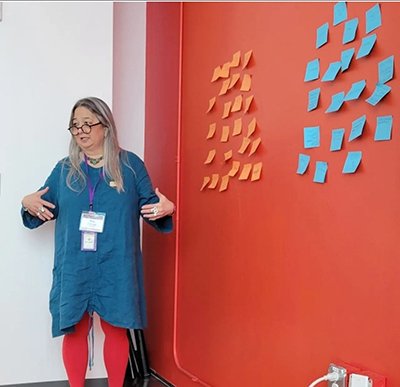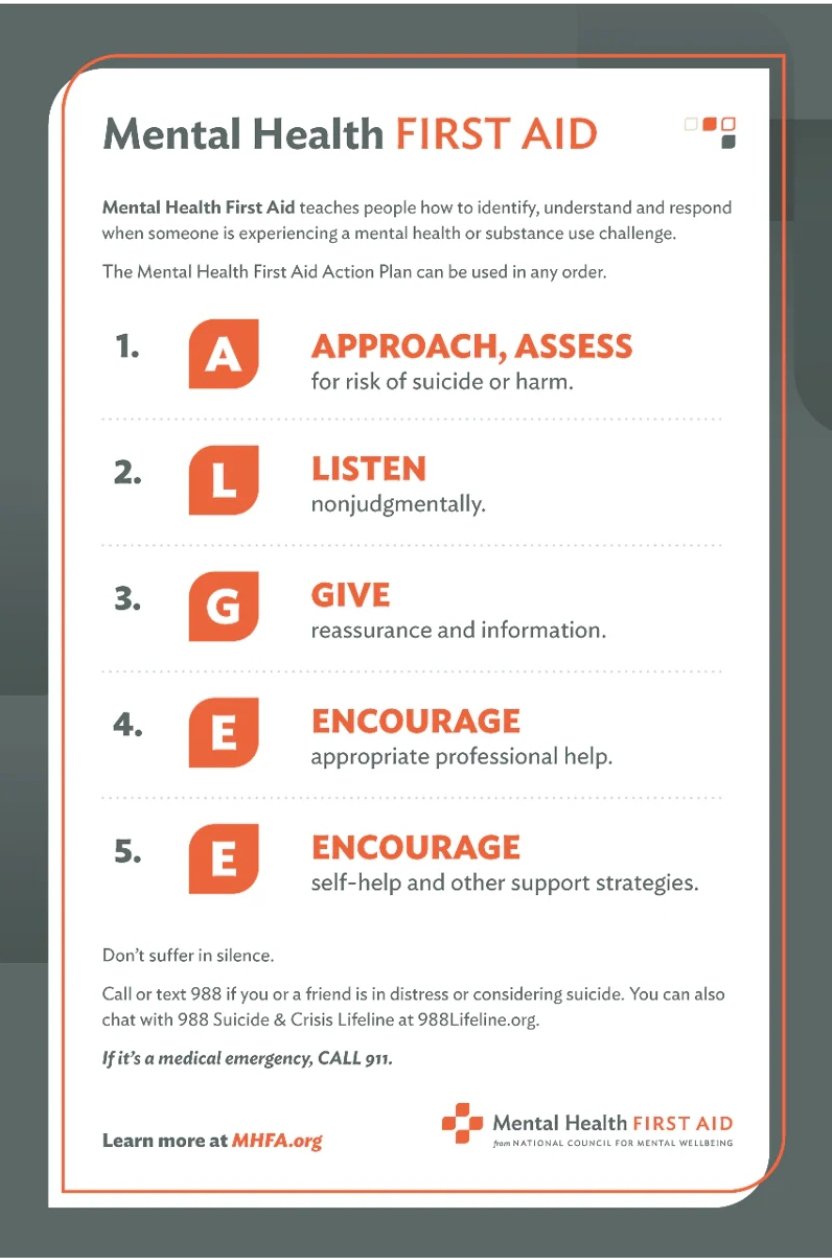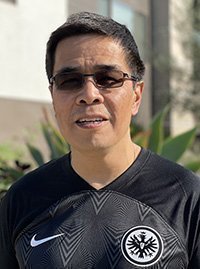Alliance Fights Hate Through Policy Advocacy, Helps Victims Heal
/Krystle Canare holding the Congressional Resolution for National Asian American, Native Hawaiian, Pacific Islander Mental Health Day in front of the U.S. State Capitol in Washington D.C. This year will be the 4th year May 10th will be recognized as National AANHPI Mental Health Day by Congress, states, and organizations across the country. National AANHPI Mental Health Day: www.naapimha.org/aanhpimentalhealthday
While presumed fellow members of the most intelligent species in the animal kingdom, American dimwits still make outrageous demands without fathoming the consequences of every person with an immigrant background vacating the country or, in Canare’s case, the logistics of a return flight to her birthplace of Subic Bay, Philippines. At that tense moment she would rather have been in the place she last saw 31 years ago before her family brought her to the U.S. at age one. Instead, she was locked in a smelly bathroom while unknown goons depleted a vocabulary that would have grown 30 percent with the addition of “xenophobia.”
Because Canare didn’t see them, she couldn’t describe them. “I didn't call 9-1-1 because there were no details I could share beyond what was yelled at me while in the bathroom stall,” she recalls. “I didn't have any intel around what the people looked like, what their car was, where they went. And while I took a look at the cashier who was the only other person there at 5 or 6 a.m., I was more concerned about running straight to my car because it was unlocked and had my sleeping partner in the passenger seat.”
She did, however, contact “the Asian Americans Advancing Justice and Stop AAPI Hate's hate crime trackers to make sure my story was counted.”
Helping Victims Heal After a Hate Crime
As the name implies, NAAPIMHA is concerned for the mental health of Asian Americans, Native Hawaiians and Pacific Islanders. Washington, D.C. The organization’s location gives it proximity for advocacy among government agencies.
Dr. Pata Suyemoto, NAAPIMHA Executive Director, facilitates a free mental health training, Achieving Whole Health: Balancing Body, Mind, and Spirit which trains AANHPI community members to become wellness coaches in their communities. Trainings: www.naapimha.org/trainings
“NAAPIMHA was created in 2001 to serve as a national voice speaking on behalf of our community for different offices of minority health,” says Canare. “We also conduct mental health trainings to understand the impact of racism on mental health.”
NAAPIMHA has been a nonprofit partner of the Substance Abuse and Mental Health Services Administration (SAMHSA). “Our staffs meet every month to align our efforts through policy and resource sharing. We discuss how we tackle priority issues in the community. One subject in our meetings has been how we combat hate,” Canare relates.
SAMHSA has funded NAAPIMHA programs that are well represented leading up to AANHPI Mental Health Day on May 10, 2024, which anchors the present AAPI Heritage Month. Canare sees this year’s iteration as an opportunity to rekindle interest in legislation like the Stop Mental Health Stigma in Our Communities Act that would have allocated funds for SAMHSA “to develop and implement an outreach and education strategy regarding behavioral health issues among Asian American, Native Hawaiian, and Pacific Islander populations.” The failed bill also sought “to reduce stigma associated with mental health conditions and substance abuse among such populations.”
With modest resources and a spirited group of college interns, NAAPIMHA has been a driving force in youth programs, particularly Friends Do Make a Difference. Members seek solutions to prevent bullying, implores teens to become “upstanders in calling out hate,” and delves into the psychological effects of AAPI hate.
Canare has counseled victims of hate of all adult ages. “When we meet with victims, some common themes have been a large sense of shame in their identities and where they come from.”
Injuries mount when victims internalize the messages radiating from hate incidents. “They tend to carry the shame with them and feel helpless as the shame morphs into self-hatred. Our mental health support can help stop their decline by getting them past the initial stigma. Once they confront their pain and suffering, we can help restore their self-esteem and begin the healing process.”
Without the talking cure of psychotherapy often supplemented by medication, she says, “Victims can become disillusioned by the news, devote hours after dark to doom scrolling for disturbing editorial feeds.”
“When we meet with victims, some common themes have been a large sense of shame in their identities and where they come from.”
Following her encounter with the unknown toilet loiterers, she has found, “hope in my identity. I believe in the Filipino concept of kapwa, which translated from Tagalog means interconnectedness through shared self. It gives me hope that Fil-Ams are not giving into the mistaken perception of us as ‘forever foreigners.’ Our strength comes from community. As a victim of verbal assault, vicarious trauma allows me to identify with others who are suffering wounds from a hate incident.”
Unhoused But Not Unhinged
Canare also finds solace in travel. In early May, she was farming on a 10-acre plot owned by the family of her partner TJ Simba-Medel, 36. The farm leaves the impression that they are taking inspiration from their prehistoric ancestors who first settled down to grow crops. But the couple lives in a 32” RV that supports a nomadic lifestyle better aligned with the cave-dwelling hunters and gatherers who preceded agrarian society. The story of their adventures as Fil-Ams on the road with their faithful dog will have to wait.
Krystle Canare and TJ Simba-Medel in front of their RV. As community organizers & mental health advocates in the Filipino American community, we wanted to find a way we could travel safely to check-in on others during the pandemic. After a month-long RV rental visiting Filipino American historical sites and communities from Arkansas to Washington to California and everywhere in between, we decided to RV full-time in 2022 to continue our journey of reconnecting with the land, our history, and communities nationwide. (Source: Instagram: @tayotrails)
Hey, Hey Not the Monkeys
Before I wrap up this story, I should address Canare’s recollection of the time her mother was called a monkey while working at a check stand of a Maryland grocery store. To be fair, the clueless customer probably did not realize the sordid history behind the term “monkey.”
After their surrender in 1945, Japan’s leaders compared the estimated 10 million persons across Asia, including Filipinos, who perished during their imperial expansion, to monkeys. Perhaps the accused thought that further dehumanizing the victims, who were used for biological warfare experiments, would excuse them from charges of crimes against humanity or to modern Westerners, the more severe classification of genocide. The door on the floor opened for a small number of Japanese militarists anyway.
Many of today’s East, South and Southeast Asians aren’t as far removed from the generations of their parents, grandparents and great grandparents who were casualties of 20th Century inhumanity for which Japan's leaders may never attempt to atone as Mayflower sons and daughters are from their relatives who suffered religious persecution across the Atlantic. By the same measure, it’s about four centuries too early to joke with Asians about monkeys.
NAAPIMHA offers free, Mental Health First Aid certification trainings to AANHPI communities across the country. Mental Health First Aid teaches you how to help someone who is developing a mental health problem or experiencing a mental health crisis.
(source: https://store.mentalhealthfirstaid.org/products/mhfa-action-plan-poster)
Anthony Maddela is a member of the Cancer Support Community of Los Angeles and has been a staff correspondent for Positively Filipino since its inception.
More articles from Anthony Maddela









